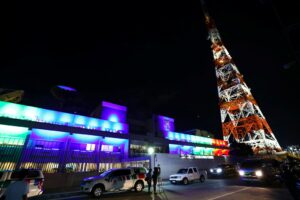Revitalizing the Fourth Estate of our democracy

When the Duterte administration, through the House of Representatives, shut down network giant ABS-CBN by denying the extension of its franchise, there was a palpable sense of gloom and foreboding among many Filipinos.
The shutdown happened just a few weeks after the first announcement of lockdowns due to the COVID-19 pandemic. Given how ABS-CBN had been generally critical of the Duterte administration’s pandemic response and of its war against drugs, the denial of the franchise was seen as an assault on press freedom and a successful attempt by President Rodrigo Duterte to silence his critics.
To the shock of millions, the final blow was delivered on May 4, 2020, just a day after the global commemoration of World Press Freedom Day.
With the shutdown, some 12 local TV Patrol newscasts delivering news in the dialects were also forced to close down. Thus, there ensued an information gap for Filipinos living in far-flung rural areas — numbering around 3 million — who relied solely on ABS-CBN in obtaining the news. Kapisanan ng mga Brodkaster sa Pilipinas Chair Ruperto Nicdao said millions of Filipinos simply “tuned out of television” when ABS-CBN was forced off the air.
This became especially crucial during calamities — no other television and radio network had the same reach and influence, and internet infrastructure was, and still is, not adequate, if not totally absent, to provide the needed information.
This has been the state of things for the past 27 months.
Thus, if we are to go by reports that ABS-CBN has joined forces with TV5, we have reason to be hopeful that what was missed by the public, and even the broadcast industry’s ecosystem, may soon regenerate into the next dominant channel for news and entertainment.
In an investment deal announced last week, the Lopez-owned ABS-CBN acquired a 34.99% stake in TV5 and has the option of acquiring up to 49.92% in the future. Tycoon Manuel Pangilinan’s MediaQuest will remain as majority owner.
Proceeds from the sale of shares, amounting to P2.16 billion, will fund TV5’s capital expenditure and operating expense in enhancing its content and programming.
Also included in the investment deal is the Pangilinan’s Cignal Cable Corp.’s acquisition of 38.88% of the Lopezes’ Sky Cable Corp.
Rep. Gus Tambunting, chairperson of the House Committee on Legislative Franchise, said in a recent interview with Radyo ng Bayan that the agreement is actually a simple business venture wherein a legitimate TV network, with a channel and franchise, has partnered with a former television network which is known to provide good and popular content.
“From a business point of view,” he said, “it seems very sensible to give space to the former leading network. This can be a very good business venture. One has the airspace, the other carries the content.”
At least two advocacy groups have also issued statements regarding the deal between the two networks. CitizenWatch says it will ultimately redound to the benefit of the Filipino people and will elevate the quality of Philippine entertainment and public service.
Meanwhile, according to Bantay Konsyumer, Kalsada, Kuryente (BK3), the merger is an opportunity to create a new and credible brand of public service that would deliver not just entertainment but would, hopefully, become a developmental medium of education and good values, freely accessible to Filipinos wherever they may be in the archipelago.
BK3 adds: “The merged creative and production pools of both networks also make us hopeful of higher quality programming that entertains, yes, but also educates and encourages critical thinking among viewers, especially the young.”
The deal between ABS-CBN News and TV5 is an encouraging development for Filipinos, who will again have access to quality information and programs. More importantly, the agreement tempers the “chilling effect” that was created by what many observers saw as a whimsical and vengeful act of the past administration when it shut down ABS-CBN more than two years ago.
The media is called “The Fourth Estate” for a reason. It has a unique and specific function in a democratic society. Its practitioners, schooled in the rigors of journalism and imbued with a sense of public service over personal gain or glory, perform a valuable good in holding public officials — servants of the people — accountable for their words and actions.
When these public officials feel slighted by criticism and then retaliate by bringing about the closure of a media organization, that is never good for a democracy. When people and organizations fear something bad will happen to them when they speak out, that distorts the very essence of a free society.
Democracy thrives in assent and dissent, in the free exchange of views and the civilized recognition of each one’s inherent freedom of expression. The return to free television of ABS-CBN’s known brand of professional and intrepid reporting and commentary, makes us just a bit more confident of better, or at least more reasonable, times ahead.
For now, the chill and foreboding have been replaced by hope.
Victor Andres “Dindo” C. Manhit is the president of the Stratbase ADR Institute.




